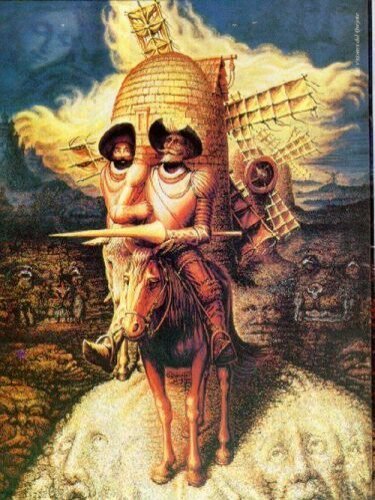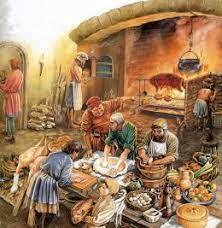#Melitta Weiss Adamson
Explore tagged Tumblr posts
Text
Tilting at Windmills with Don Quixote, Or, A Meditation on Spanish Herbals
Illustration by Octavio Ocampo I’ll confess something here: until just recently, I never read Don Quixote, except for snippets here and there. No, thanks to the preferences of my Spanish professors, instead I spent days swooning over the lyricism of poets Federico García Lorca and Pablo Neruda or stumbling through conquistador Bernal Díaz del Castillo’s account of Hernando Cortés’s conquest of…

View On WordPress
#acerca de la material medicinal#Andrés de Laguna#Arnald of Villanova#Bernal Díaz del Castillo#Don Quixote#Federico García Lorca#Libro de Medicina llamado Macer#Longaniza#Luis Lobera de Ávila#Macer Floridus#Melitta Weiss Adamson#Miguel de cervantes#Nicolás de Monardes#Odo of Meung#Pablo Neruda#Pedacio Dioscorides Anarzabeo#Penelope Casas#Rafael Chabrán#Rosemary#Sancho Panza
3 notes
·
View notes
Text

The richer the household in the Middle Ages, the better equipped its kitchen was, the more refined its cuisine, and the greater the likelihood that the food was not prepared by a lone housewife, but by one or more professional cooks with an army of helpers. Monasteries, manor houses, castles, and the houses of the wealthy bourgeoisie were the places where cooks exercised their craft, if they did not run their own business. Like many other professions at the time, cooks were organized in guilds. To become a master cook in Paris, for instance, one had to first work as an apprentice for two years, and then as a journeyman for another master. Having attained the title of master, a cook had several options: he could open his own cookshop, work for another master, or seek employment in a wealthy household. The relatively low pay cooks received compared to members of other professions suggests that their status in society was not particularly high. There were exceptions, of course, such as the famous Taillevent, chief cook of the king of France, who was handsomely rewarded for his services and was even given a coat of arms. Judging from the literary sources, however, it would appear that on the whole cooks suffered from an image problem in the Middle Ages, a time in which the spirit was held in much higher esteem than the body, at least by the educated elite. Hence the work of a scribe copying a religious text was regarded as vastly superior to that of a cook who catered to the needs of the flesh. Aside from their perceived lack of education, cooks and their staff were often looked down upon because their job was a messy and smelly one that made them reek of kitchen odors. Furthermore, they were accused of drinking on the job, of being hot-tempered and crotchety, and of possessing a rough sense of humor. In their defense it must be pointed out that their job was not always easy, besieged as they were by boarders, nibblers and tasters, who were not only of the human kind, but included dogs, cats, foxes, rats, mice, and flies, to name a few. Little wonder, then, that cooks were known to use their trademark laddle, with which they were usually depicted, not just to taste the food but also to discipline and chase away the various interlopers.
Melitta Weiss Adamson- Food in Medieval Times
6 notes
·
View notes